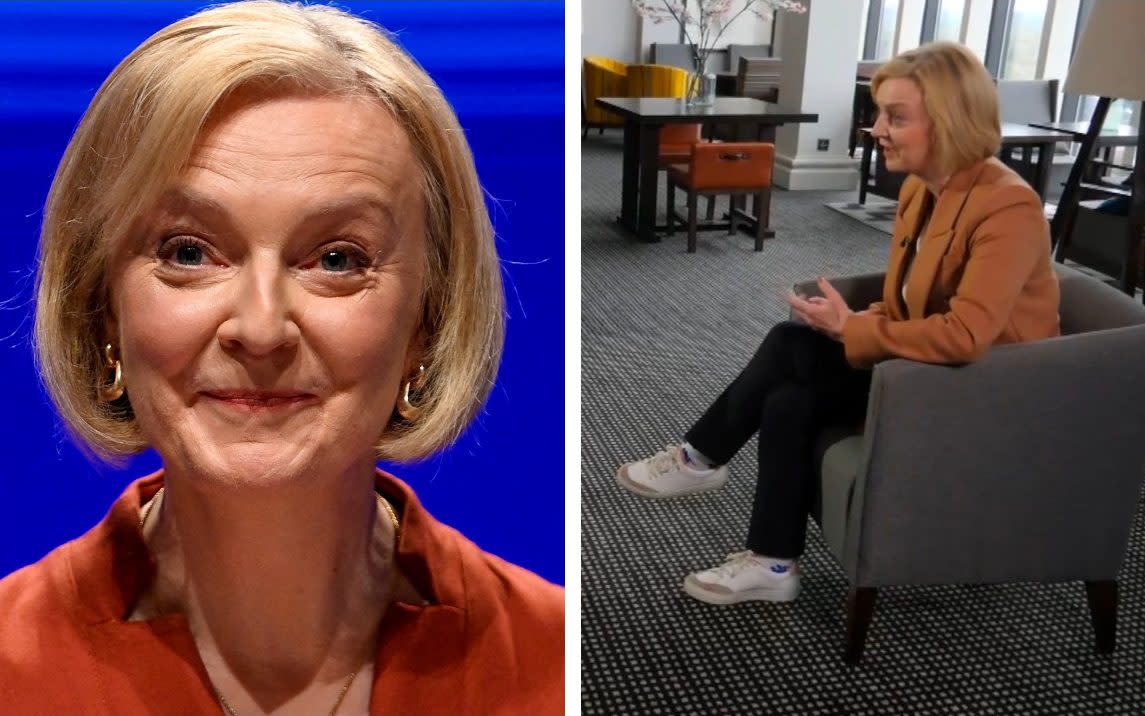How politicians ruin fashion for the rest of us

In 1992, the model Rosemary Ferguson was photographed in The Face magazine wearing a tailored suit and white trainers. The look promptly spawned a thousand copycats – the latest of whom appears to be Liz Truss, not a model for an edgy style magazine but Britain’s Prime Minister, though why let something as piffling as a job description come between a woman and her desire to wear trainers to work?
Maybe she’d come straight from the gym. Maybe she was nursing a bunion from the previous day’s court shoes. Regardless, the look didn’t go down well, the general consensus being that trainers were too casual a choice for a TV interview in which the subject was being grilled about how to fix Britain’s tumultuous economy.
But then, British politics is littered with embarrassing attempts by Prime Ministers trying to “do” fashion. Who can forget the sight of David Cameron in black Converse All Stars, sneakers of indie rock bands and disaffected alt youth? Or William Hague in a baseball cap embroidered with “Hague” on the front, like some low-rent Tom Brady? Like Liz Truss in her Reiss trainers, these items looked too casual for the job in hand; the most common outcome when politicians veer from the suited and booted look. It’s hard not to conclude that their embrace of trainers and baseball caps is less about “fashion” than an attempt to look relatable, by mirroring the sartorial choices of the electorate. It’s why Cameron wore green Dunlop wellies rather than the £125 Hunters you can bet he had at home.

The electorate doesn’t want its politicians to look relatable. It merely wants them to do their job. Nor does it want them to look as though they’re keeping abreast of current trends beyond the macro-economic variety. It’s clear that Rishi Sunak has a genuine interest in fashion: you don’t get to know about Everlane sweaters and Travelling Artisan shirts by reading The Economist. But his custom-made suits, notable for their too-short trousers, couldn’t help but beg the question of why the then chancellor seemed to be able to find the time to indulge in a slew of bespoke tailoring sessions while the rest of us barely had time to grab a sandwich.
Thanks to societal judgment and the fact that smart office attire is harder to get right, female politicians have a far more fraught relationship with fashion than their male counterparts, and are judged more harshly for their perceived “mistakes”.

Margaret Thatcher can only be grateful that social media hadn’t been invented when she was indulging in her love of pussy bow blouses. Like Rishi Sunak, Theresa May clearly takes an interest in fashion, as evidenced by her wide repertoire of bold necklaces, Amanda Wakeley suits and statement shoes. This strong and stable wardrobe generally endeared her to the electorate, but she was still criticised whenever it was perceived that her choices had veered too far from the sort of clothes your bank manager would wear. May’s brown leather trousers raised some eyebrows, while some even questioned whether her beloved leopard print pumps were too louche.
Clearly, this is ridiculous, nor does Britain endear itself when it rushes to judgment over female politicians whom it deems to dress “too sexily”. That it tends to be working-class women who attract the most bile says far more about the critic than the criticised. When Tracy Brabin wore an off-shoulder top in 2020, she faced a slew of abhorrently sexist criticism of a type with which Angela Rayner is still all too familiar. Regardless of their degree of interest in fashion, to be uninterested in it is not a luxury that is afforded to female politicians. Whatever we think of the role that fashion should play in politics, to say that it shouldn’t or doesn’t is naive.
The language of clothes might be a complex one, but it speaks volumes. Of course clothes matter in politics. But they should never matter most.


